|
by Deb Portz The benefits of private school choice should not be limited only to those who can afford it. On Sunday, November 18th, I attended a parent meeting in the basement of St. Mary's in downtown Lincoln across the street from our state capitol. About 200 parents were in attendance. St. Mary's pastor, Fr. Dietrich, addressed the crowd of around 200 parents, and explained the financial situation of three of Lincoln's poorest Catholic elementary schools - St. Mary's, Sacred Heart, and Blessed Sacrament. He explained that one or two of these schools would likely close at the end of this school year unless each school could raise $150K+ to cover deficits. That did not include infrastructure needs at each school. These are schools that offer a private, faith-based education to students who live in the highest poverty neighborhoods in Lincoln, and for many, where English is not the primary language spoken in the home (there are 17 languages spoken among students at St. Mary's alone). At St. Mary's, over 90% of the 123 students would qualify for free-and-reduced lunch at LPS. I watched with a broken heart as St. Mary's parents looked for ways they could reverse the direction of these outcomes - one parent offered to sell tamales and work bingo all year, one offered to volunteer skills she was learning in her Marketing class at SCC. I watched math teacher, Frank McEntarffer, offer an aggressive fund-raising plan for parents to engage in during the year, as well as offering half his annual salary ($20,000) to the school. I watched as my friend, and St. Mary's principal, Nina Beck, took questions after the presentation from worried parents who realized they lack options to keep their first choice for educating their children at St. Mary's. I have worked with St. Mary's kids on school choice grassroots activities for the last four years. I have watched them embrace a unique curriculum in math, using Ec3 Academy and UNL Engineering students as mentors to coach middle school math. In those four years, not only have middle schoolers at St. Mary's gone on to Pius and LPS high schools excelling above their peers in math assessment criteria (most have a college-and-career ready ACT score of 23 in the 8th grade), they have eliminated the need for remedial math courses at Pius and won statewide math competitions. They have drastically closed the usual statewide acheivement gaps for minorities in the last 5 years, using less than 1/2 the amount of taxpayer money spent for a student in LPS, and they have done something our public schools in Nebraska have not been able to do in math outcomes in Nebraska in three decades. So much so, LPS approached Ec3's Dan Alberts to have him execute the math curriculum in their schools. Unfortunately, the lack of autonomy and curriculum quality control demanded by LPS made a program that was proven to be highly successful for at-risk students, unable to function within the system using the criteria that made it so successful. If these Catholic schools close, students will either matriculate into LPS at double the cost to taxpayers, or they will be bused to other Lincoln diocese schools. Neither will be the first choice of these parents for the education of their children for all sorts of unique reasons. And while I realize the funding model of Catholic schools is part of this problem, it is also a problem of our state, city and communities in education. I suggested we look at what Omaha has done with similar poor Catholic schools in development, using a model like Cues Omaha (three schools in North Omaha) or Omaha Catholic School Consortium (five schools in South Omaha) for dual language learners. Private school choice legislation across America is not only succeeding at improving education outcomes like closing achievement gaps with low-income minorities, it is saving taxpayer dollars that can be used across many areas of public education. And it gives parents the power to choose the education that fits their child and family. It is the fast-moving progress, innovation and improvement in public education in America that Nebraska is missing out on because the lobbying to protect the power and control of the education monopoly is well-funded in Nebraska. Change will only come as Nebraskans educate themselves more about how school choice benefits everyone, especially our public schools and rural schools. I will continue to work to organize the Nebraska School Choice Week rally each January to raise awareness about the benefits of allowing a parent to choose their child's K-12 education. I will continue to support educators and legislators who are trying so hard to improve the use of taxpayer dollars for public education and how we measure education outcomes with more meaningful and effective approaches. I will continue to testify in legislative committee hearings for school choice and education reform bills, and I will call out the inaccuracies and hypocrisies spoken by state senators, school board members, superintendents, and the teacher's union on how school choice will ruin public education or that we already have equal opportunity in school choice in Nebraska. My coalition colleagues and I will write letters to the local papers, and maybe they will be published, and maybe they won't. But now is time for Nebraskans to support these efforts and make your voices heard. Otherwise, we will continue to lose choices for parents and students that are proven to be successful by having more opportunity to find the best fit for each kid in education. We'll have another post soon to show exactly where their state senator stands on providing students with educational options that meet their needs.
0 Comments
The Blog of Harvard Education Publishing reported that Warren Buffett, who is “ranked among the four or five richest people in the world,” has given about $28 billion to charities, including nonprofits. Sounds great, right? The blog post continues: “Anxiety about large transfers of concentrated private wealth taking place with little public accountability has been an issue in American policy for close to a century. The ‘charitable deduction’ clause in our tax code, which was legislated in 1917, enables donors to hold on to much of their wealth if they donate a minimum amount (roughly 5 percent) to legitimate nonprofit organizations and causes. However, relatively little accounting is required to show exactly how the funds are disbursed, which has been alarming to people regardless of their political orientation.” The Sherwood Foundation IRS 990 form from 2014 lists Warren Buffett as the foundation’s sole contributor. He funded Sherwood’s 2014 operations with 1,160,981 shares of Berkshire Hathaway Inc Class B, which totaled $149,743,329. As we’ve seen from previous posts on this topic, a billionaire is controlling education in Nebraska in a major way. And in this post, we’ll see how a national education figure who regularly blames education issues on the “Billionaire Boys Club” has latched onto Nebraska as a pet project and a source of support. Diane Ravitch’s NPE Organization Ravitch founded the anti-choice Network for Public Education in 2013, and she also runs Network for Public Education Action Inc., which is listed as a 501(c)4 organization on its 2016 IRS 990 form. According to the IRS, 501(c)4 organizations cannot publicly endorse or overtly support or oppose political candidates. In spite of the clear IRS rules governing 501(c)(4) organizations, NPE Action has been endorsing plenty of candidates in a very public way. In March, Diane Ravitch posted the following statement on her blog: In fact, the Network for Public Education Action website posted its November 6 endorsements with the disclaimer, “we cannot endorse in every state and in every race because we are a 501(c)(4), not a Political Action Committee.” We haven't seen any statements from the IRS explaining that 501(c)(4) organizations can endorse candidates in some states and some races but not in others (we're parents, not attorneys, but this seems fairly straightforward). NPE Action also “officially endorses” Andrew Gillum, who is running for Governor of Florida. Gillum has served on the Board of Directors of the Schott Foundation (2013, 2014, 2015), which co-produced “Grading the States: A Report Card on Our Nation’s Commitment to Public Schools” (along with Ravitch’s NPE Action) and paid for activists to attend NPE’s conference in 2015. This report has been highly touted by the Nebraska Department of Education and by Sherwood-funded nonprofits that are desperately trying to hang on to top-down control of Nebraska’s K-12 education. According to IRS reports, the Schott Foundation for Public Education has working operating funds of many millions of dollars every year while Ravitch’s Network for Public Education operates on far less. The “Grading the States” report ranked Nebraska #1 in the country for “commitment to democracy,” which is beyond ironic given the study’s methodology. In other words, the authors of this study held up a small state controlled by a billionaire as a bastion of democracy while it awarded last place to Georgia, Florida, and Arizona, where parents have many different educational opportunities to choose from for their children’s educations. The Schott Foundation for Public Education's board of directors include Antonia Darder, who founded “a member-supported radical teachers organization committed to an educational vision of schooling intimately linked to social justice, human rights, and economic democracy” and whose mentor, the Brazilian Marxist Paulo Freire “profoundly shaped the direction of her early work” (unbelievably, these quotations come directly from the Schott Foundation for Public Education’s 2015 IRS 990 form); Alvin Louis Starks, who “aspires to expand and stretch the untapped possibilities of social justice advocacy” and worked at Open Society Institute, founded and funded by billionaire George Soros; Deborah LaBelle, a Senior Soros Justice Fellow; and Baishali Rinku, also known as Rinku Sen, who is an expert on “intersectionality organizing.” The authors of the “Grading the States” report are Tanya Clay House, a strategist for the Schott Foundation; Carol Burris, Executive Director of NPE; and Darcie Cimarusti, Communications Director of NPE. They're activists, not academics, and yet, many in Nebraska treated this report as if it were peer-reviewed research about student outcomes. The report doesn’t grade the states on any of the metrics that matter to parents: proficiency in core subjects, college readiness, ACT scores, or success beyond K-12. Instead, the authors of the study rank the states on degree of government control over education. And, of course, Nebraska wins! How could it be otherwise? Where else in America are so few people flooded with so much money aimed at sustaining the bureaucratic status quo? Which other state has one of the “four or five world’s richest people” eager to implement his vision for society? And what is that vision? In 2014, Gene Glass from the National Education Policy Center at University of Colorado wrote the following in a blog post: “What if I said to you that the solution to the problems in our education system would be to ‘make private schools illegal and assign every child to a [state] school by random lottery’? That’s the view not of Karl Marx or the Chinese Communist Party but of the billionaire US investor and philanthropist Warren Buffett.” Is it any surprise that Sherwood Foundation nonprofits are working with the Marxists at the Schott Foundation to try to affirm the stranglehold a billionaire has on Nebraska’s education system? Nebraska is an easy target, a petri dish for those who would love to try out their unAmerican ideas on American students. And our Nebraska school administrators and elected officials are playing right into their hands. Diane Ravitch and Susie Buffett On November 18, 2015, Diane Ravitch visited Omaha at a gathering billed as Metropolitan Omaha Educational Consortium event. Susie Buffett paid for Ravitch’s trip, and during the visit, Ravitch appeared in a NElovesPS film. In 2014, Sherwood Foundation had given $698,353 to an Omaha company called Just Jump Films, Inc, which appears to be NElovesPS, according to Brittany Mascio’s LinkedIn profile. In 2015, Just Jump received over $1,000,000 from Sherwood, and in 2016, Sherwood spent over $2,000,000 on Just Jump. Diane Ravitch often talks about billionaire influence on the school choice movement, but she doesn’t talk about her own billionaire connections. She works hand-in-hand with both the Schott Foundation for Public Education and the Sherwood Foundation to prevent low-income students from having the education options that their wealthier peers have. The crowd Ravitch works in also enjoys some pretty nice benefits that are unthinkable for parents who can’t afford options outside of the traditional public schools. Did you know that her colleagues at the Schott Foundation for Public Education get reimbursed by the nonprofit for their $75/month health club memberships (according to the 2015 Schott Foundation 990--Part III, Supplemental Information)? Stand For Schools as Local Partner for NPE Stand for Schools, which is funded by the Sherwood Foundation, is listed as a local partner for Diane Ravitch’s NPE. Additionally, Stand for Schools president Ann Hunter-Pirtle served as a speaker at the NPE convention. This is an important connection between Diane Ravitch and the Sherwood Foundation. Ravitch can hold Nebraska up as a bastion of no choice, and Stand for Schools and other Sherwood nonprofits can get national attention from Diane Ravitch. This national attention, including documents like the “Grading the States” report, help Nebraska educators and even some parents to accept the increased government control (think about the forays into early childhood by the Buffett Institute). Everyone enjoys accolades and recognition, especially when it comes from national sources. Ravitch and the Billionaire Girls Club Diane Ravitch relentlessly accuses Bill and Melinda Gates and the Walton Family of undermining public education because they donate to all kinds of education options rather than just to traditional public schools. Perhaps these other philanthropists recognize the fact that kids are all different, and what works for one child won’t necessarily work for all of them. In the same breath, Ravitch is working with billionaires to make sure children are treated as a collective whole instead of as individuals with unique challenges, strengths, and dreams. Based on the latest batch of Nebraska ACT scores, the time to diversify education options in the state is long past due. Will Nebraska legislators prioritize children over billionaires this upcoming session? Time will tell. In the meantime, parents and concerned citizens should be careful about the people they elect to the unicameral. Are any of the candidates in your district funded by the Sherwood Foundation? Do any of them work for Sherwood-funded nonprofits? It’s also important to hold school board members and school administrators accountable. Watch to see who slavishly retweets propaganda produced by NElovesPS, NPE, NCSA, Open Sky, Nebraska Appleseed, Stand for Schools, and other arms of the billionaire octopus. We parents and citizens may not have the money to compete with billionaires, but we can vote for freedom and choice and we can hold our lawmakers accountable if they’re loyal to billionaires at our expense. Catch up on the Series:
Part One: NCSA and Affiliates Part Two: Elected Officials Part Three: Activism in the ESUs Attend a school board meeting in Nebraska, and you’ll hear the acronym “ESU” tossed around. But what is an ESU? Created by the Nebraska State Legislature in 1965 (LB 301), Educational Service Units (ESUs) are intermediate agencies that provide supplementary services to school districts. There are 17 ESUs in Nebraska, and most of them cover multiple school districts. The idea behind ESUs is that by sharing resources, smaller rural school districts can increase cost-effectiveness and share resources that might be too expensive on a small scale. Two school districts (Lincoln and Omaha) have their own ESUs. For these districts, the ESUs are essentially additional layers of bureaucracy with their own budgets funded by property taxes, and there have been concerns about internal controls. Since ESUs are relatively unknown to taxpayers, citizens, and parents, it’s not difficult to use them as shields for various expenditures and activities, and it appears that Sherwood-funded nonprofits have been using Nebraska ESUs for political activism purposes. Additionally, by tapping into ESUs, the Buffetts can exert influence over many districts at the same time. Let’s take a look at another way Dark Money has infiltrated K-12 education in Nebraska. Propaganda Aimed at ESU #13 and ESU #15NSCA Ambassador Cinde Wendell (remember that the NSCA Ambassadors are funded by the Sherwood Foundation) appears to have traveled out to Scottsbluff to attend the ESU #13 Administrative Advisory Council Meeting on October 26, 2016. According to the meeting minutes, “NCSA has formed partnerships with Nebraska Loves Public Schools to develop video stories and with Nebraska Public School Advantage to develop written stories.” Partnerships? All three of these organizations are funded by the Sherwood Foundation. They’re just arms of the same powerful machine. According to the ESU meeting minutes, Wendell told the ESU officials that “charter schools are about business and profit” and she recommended that they read Reign of Error by Diane Ravitch, who happens to be a close associate of Sherwood’s Susie Buffett. The meeting minutes show that Wendell played clips of an anti-charter video by comedian John Oliver and another one by Diane Ravitch, who was invited to speak to 1,500 educators in Omaha in 2015 about “unnecessary reforms, such as charter schools.” These materials are politically biased and antithetical to the peer-reviewed research being published today. After giving misleading information about public charter schools at this public, taxpayer-funded meeting, the content of the meeting really gets political. The following is a direct quote from the minutes: We need to work together to promote our public schools—talk with administrators, teachers and parents and get information on your school websites. Pro charter legislation has been proposed in the past but doesn’t advance out of committee. There has been some talk about vouchers and tax credits. Not aware of pending legislation at this time. Cinde: “Let us know how we can help. Thanks for what you do for public education.” If you want individual presentations at your school, just let me know.” Brochure with Cinde’s business card and “Talking Points for Public Schools” were also distributed. [we omitted contact information for Wendell] Question: Is there a website that would show the position of candidates regarding charter schools? Cinde will check and get information to you. We know that Ricketts has given financial support to charter school proponents who support education reform and education choices. West: “We appreciate the time you’ve given us. Politics in Lincoln are changing. It would be wise for us to be aware of happenings in these areas and begin planning (proactive). We need to pay attention to candidates’ platforms. We need to get more engaged politically.” In other words, Sherwood-funded nonprofits are using our taxpayer-funded meetings to spread misleading propaganda and shore up the monopolistic status quo. They’re using their billionaire backing to prevent Nebraska students from having access to education opportunities that are available nearly everywhere else in the United States. The following tweet shows a visit Cinde Wendell made to ESU #15 just this past month. One or two visits to ESUs by these political activists wouldn't be an issue, but we've found a widespread pattern. The following are a sampling: ESU #1 ESU #3, ESU #3 ESU #4, ESU #4 ESU #6 ESU #7 ESU #9 ESU #10 ESU #13 ESU #15 Visits to ESU #17The meeting minutes for the ESU #17 Advisory Council on August 28, 2018 include the following sentence: “Mike Dulaney will be joining a couple of advisory council meetings this year to keep us abreast of legislative issues.” Who is this Mike Dulaney? And what political messaging is he spreading throughout the state via the ESUs? The following tweets from Mike Dulaney seem to indicate that he’s shoring up the monopoly rather than seeking customizable educational options for Nebraska’s diverse K-12 populations. In 2016, the Sherwood Foundation reported in their 990 IRS form that they gave $255,000 to the Nebraska Council of School Administrators for their Ambassador Program. The following year, NCSA spent $265,165 on their Ambassador Program according to their 990 IRS form, a program which consists of the Nebraska Public School Advantage staff (the NPSA website staff picture is at NCSA’s headquarters). These Sherwood-funded organizations work in parallel with Sherwood-funded Nebraska Loves Public Schools campaign, according to their website. Michael Dulaney is the registered lobbyist for NCSA, and their organization reports spending of about $55,000/year on lobbying. NCSA has also reported the following amounts of grants and contributions on their 990s in revenues (not including member dues): 2015: $85,009 2016: $265,165 2017: $495,935 In other words, Mike Dulaney is a lobbyist who is paid by billionaires to travel around the state spreading propaganda to both elected and unelected school officials. This propaganda is aimed at making sure low-income parents have no education options outside of the traditional public schools. It’s a common talking point among this set that “Nebraska already has school choice in the form of option enrollment, private school, and homeschool." Everyone knows that low-income families can’t drive their children to other towns for school or afford private school tuition or sacrifice a parent's income in order to homeschool. Most other states have solved this problem by introducing school choice measures that offer additional options to families who need alternatives. And that’s what the education establishment in Nebraska is trying to prevent. Such a move would dilute their control, influence, and power and put the power back into the hands of children’s parents. The line separating government for and by the people from billionaire control and influence has been blurred so effectively in Nebraska education that it’s almost invisible. Nonprofits and lobbyists should not have such unfettered access to and influence over educators and administrators. Parents should not be an afterthought when it comes to children’s educations. What "Supporting Public Schools" Really MeansWhen the state senators created the ESU system back in 1965, they probably never dreamed that it would be used as a network for distributing propaganda created by billionaires in order to keep Nebraska in the educational Dark Ages. The conglomeration of Sherwood-funded nonprofits trying to prevent progress in Nebraska says that they’re “supporting public schools” when really they’re trying to discredit educational options that would fall outside of the monopoly that currently exists in Nebraska’s K-12 education system. It’s all laid out in this NCSA article from Summer 2016, “Promoting Nebraska’s Public Schools” by Dr. Mike Dulaney. The NCSA board and Nebraska Loves Public Schools (Sherwood-funded) decided to create another organization called Nebraska Public School Advantage (is this another example of nonprofits funding nonprofits?). The NCSA Ambassadors (Sherwood-funded) would travel around the state “supporting public schools” and collecting positive stories about public schools to be told via film and print. But if we read the ESU meeting minutes correctly, NCSA Ambassadors aren’t just spreading cheer and goodwill; they’re also spreading propaganda and misleading political messages. In the meantime, fewer than half of Nebraska’s students are reaching proficiency standards. If these Sherwood-funded groups genuinely cared about the quality of our public schools, they would beg the state legislature to open the doors to public charter schools and tax-credit scholarships. Studies show that the introduction of these options elevates the standards at all schools, not just at the option schools. In fact, a new study based on data from Massachusetts shows that district public schools facing charter school competition shift resources from support services to instruction, where many parents and taxpayers believe that money should be in the first place. It’s not a stretch to assume that quality K-12 education isn’t a top priority for those pushing the agenda of Sherwood-funded nonprofits. If it were, their actions would be very different. Catch up on the Series: Part One: NCSA and Affiliates Part Two: Elected Officials ESU Leaders, Nebraska’s education system has been hijacked by billionaires. In the last post in our Billionaire Control series, we looked at the NCSA and how the Sherwood Foundation’s many nonprofits are like tentacles of a single octopus, funneling money through layers of nonprofits and giving the appearance of diverse groups supporting the same cause. In this post, we’ll dive into another problem: conflicts of interest for elected officials who are tied to Sherwood Foundation nonprofits. When these elected officials vote against school choice legislation, are they voting as representatives of the people who reside in their districts? Or are they voting as board members and/or staff of Sherwood-funded nonprofits? Senator Adam Morfeld State Senator Adam Morfeld is the executive director of Nebraskans for Civic Reform, a Sherwood-funded nonprofit. In 2016, the Sherwood Foundation’s IRS 990 form reported donations to Nebraskans for Civic Reform totalling over $269,000. Elected to the legislature in 2014, Morfeld has been serving on the Nebraska State Legislature’s Education Committee and faithfully towing the anti-choice Sherwood line, as shown in his own words below. Morfeld is one of the most outspoken anti-choice members of the legislature. Although he himself benefitted from a private school education when he was young, he voted “yes” on Burke Harr’s measure to indefinitely postpone LB295, which would have made it possible for Nebraska’s low-income children to receive scholarships from private donations, thus lowering the taxpayer burden for K-12 education while opening up more education opportunities for those in need. In the Education Committee hearing for LB630, Adam Morfeld not only disparaged public charter schools but talked about being the executive director of a nonprofit (funded by the Sherwood Foundation) and about running a program in a Nebraska public school (Civic Nebraska, funded by the Sherwood Foundation). How could an elected official in this position objectively consider the school choice needs of the children who reside in his district? The conflicts of interest are too great. Senator Kate Bolz Elected to the state legislature in 2012, Kate Bolz was employed as a “Community Educator” and policy analyst for Nebraska Appleseed, which received over half a million dollars from the Sherwood Foundation in 2016. Nebraska Appleseed repeats the teachers’ union and Sherwood anti-choice talking points, as seen in the following 2017 tweet. (Incidentally, Nebraska Appleseed gave a grant to Morfeld’s nonprofit, Nebraskans for Civic Reform in 2014.) Interestingly, Senator Bolz has not been vocally opposed to school choice measures. In fact, although she was present, she abstained from voting when Senator Burke Harr tried to indefinitely postpone a final vote on LB 295 (Opportunity Scholarships) this past session. We hope that she continues to consider the merits of opening up additional education opportunities for students in Nebraska. Here she is with Sherwood-funded Adam Morfeld in the t-shirt of another Sherwood-funded organization, Nebraska Loves Public Schools. Senator Sara Howard The third person in the above photo is Senator Sara Howard, who serves on the Advisory Board of New Leader Council-Omaha, an organization that receives donations from the Sherwood Foundation. Senator Howard also serves on the Omaha Public Schools Foundation, which received over $5 million from the Sherwood Foundation in 2015. Additionally, Howard worked as a staff attorney for Sherwood-funded One World Community Health Center. That’s a lot of work for Sherwood organizations, which may be why she received the Emerging Leader Award from Sherwood-fund Nebraska Appleseed. In a 2016 Omaha World-Herald article, we learn that “Howard said she doesn't support charter schools because she would rather invest state dollars into systems that have higher student success rates.” We hope that Howard reads some peer-reviewed research (rather than Sherwood-funded talking points) about public charter schools and other school choice measures before the beginning of the next session. Here’s a great place to start. Senator Anna Wishart Elected to the legislature in 2016, Senator Anna Wishart serves on the boards of two different Sherwood-funded nonprofits. She holds the position of Director of Partnerships for Nebraska Children and Families Foundation, and she’s on the NextGen Board of Advisors for the Lincoln Community Foundation. The Sherwood Foundation gave over $3.8 million to the Nebraska Children and Families Foundation in 2016 and $100,000 to the Lincoln Community Foundation in the same year. She has also been on staff at Beyond School Bells, a nonprofit funded by Sherwood-funded Nebraska Children and Families Foundation--this is another example of two-layer-deep funding, making it difficult for taxpayers to follow the money trail. Anna Wishart is on the record as opposing public charter schools. The Omaha World-Herald reported, “Wishart said the state has strong public schools and that she would not support charters, saying she believes they would be less accountable to the public. But she added that she strongly backs educational innovation within the public school system.” Perhaps her tepid opinion reflects the fact that Wishart is a Millennial (and Millennials strongly support school choice), and yet she is heavily involved with organizations that vehemently oppose parents’ rights to choose. It’s a difficult position to be in: 79% of black Millennials support policies to allow charter schools, but your major source of funding says absolutely not. Senator Burke Harr Burke Harr was the president of Project Harmony’s Service League, which received over $2.8 million from the Sherwood Foundation in 2016, according to IRS 990 forms. He has also appeared in the Sherwood-funded film Consider the Alternative, produced by NElovesPS, another Sherwood organization. Although he attended private schools himself, and although he has sponsored tax-credit legislation, Senator Harr put on quite a show during the LB295 hearing this past session, jumping ahead of the bill’s sponsor to make a motion to indefinitely postpone the bill that would offer tax credits to organizations or businesses that donate to private school scholarships for low-income K-12 students. Sherwood-funded Stand for Schools recently honored Harr at a fundraiser in Omaha for his “support of public schools." Senator Kathy Campbell Elected to the Nebraska legislature in 2008, Kathy Campbell termed out in 2016 when she was replaced with Senator Suzanne Geist. Kathy Campbell’s husband Dick was asked to be one of the first board members of OpenSky and served as the Sherwood-funded organization’s treasurer. A 2013 Watchdog article says, “Campbell said OpenSky started with a small group in Omaha, including Kristin Williams of the Sherwood Foundation, which ‘promotes equity through social justice initiatives.’” Another early board member of OpenSky was Howard Buffett, grandson of Warren Buffett. In 2017, Kathy Campbell replaced her husband Dick on the OpenSky board. Earlier this year, Sherwood-funded OpenSky released a policy brief about LB295 (Opportunity Scholarships) that included misleading information. For instance, it said that scholarship tax credits are not likely to create savings for the state. Peer-reviewed academic research does not support this claim. In fact, data published this year shows that tax-credit scholarship programs generated between $2 million and $223 million for the sponsoring states in 2014 alone. This isn’t the only questionable claim in the OpenSky report, and of course, the report was used by Sherwood-funded Stand for Schools, Sherwood-funded NCSA, and various other Sherwood stakeholders to mislead people about the true nature of tax-credit scholarships. Senator Tony Vargas Executive Director Tony Vargas of Omaha Healthy Kids Alliance has received $20,000 for his nonprofit in the three years for which we have IRS 990 forms for the Sherwood Foundation (2014, 2015, and 2016). He also sits on the board of New Leaders Council-Omaha (along with senate colleague Sara Howard), which also receives Sherwood Foundation donations. At some point in the past, Vargas supported charter schools, at least according to election opponent John Synowiecki. He even voted for a charter school bill (LB972) while serving on the Education Committee of the Nebraska state legislature, but in the years since, he has backtracked on his support for school choice options. He was appointed to the Omaha Public Schools Board of Education in 2013, and in the past few years, Vargas has seemed to avoid speaking about his former support for school choice. LPS School Board Member Connie Duncan Connie Duncan serves as the Vice President of Philanthropy for Sherwood-funded Nebraska Children and Families Foundation and as a board member for the Lincoln Community Foundation, which also accepts funds from the Sherwood Foundation. On the 2016 IRS 990 form for Stand for Schools, Duncan is listed as Treasurer. Although local school boards don’t have any jurisdiction over statewide school choice legislation, Duncan regularly makes her anti-choice opinions known. Here she is on Facebook supporting a press conference by Stand For Schools, a Sherwood-funded organization that opposes education opportunities outside of traditional public schools. Billionaire Control of Nebraska Education
Do some Sherwood Foundation donations represent conflicts of interest when it comes to elected officials’ votes? Absolutely. If elected officials must weigh their votes between the people they represent and the wishes of their employers or largest donors, we no longer have a true representative democracy. Senator John Kuehn has written about this very problem: “It is not uncommon for foundations to donate to other nonprofits, which may in turn fund additional nonprofits, effectively laundering donor money and removing it several steps from public view. Have you ever wondered who funds Nebraska Loves Public Schools? Founded in 2011 by the Sherwood Foundation, several Sherwood-funded groups also provide financial and logistical support to the organization. Thus, voters may have to look back through several layers of financing to identify the true source of funds.” Our investigation of elected officials serving in Sherwood Foundation nonprofits was not exhaustive, but we did find instances where one Sherwood-funded foundation donated to another Sherwood-funded nonprofit, such as Wishart being employed by Beyond School Bells, which is funded by Nebraska Children and Family Foundation, which is funded by the Sherwood Foundation. If money talks as loudly as it seems to, we are only hearing from one billionaire, despite the appearance of diversity in our elected officials. Stay with us as we learn more about the many ways Dark Money is preventing children in Nebraska from accessing the educational options available to their peers in other states. Only two other states in the nation (West Virginia and North Dakota) join Nebraska in offering no school choice options to students. We have some schools in the state where fewer than 10% of the students are reaching proficiency benchmarks, yet because of billionaire control of elected officials and other parties, these children and their parents have no other options. Catch up on the Series: Part One: NCSA and Affiliates Part Three: Activism in the ESUs When one organization is funding the anti-school choice talking points that will be used by other advocacy organizations, and it has a marketing propaganda arm spending millions to reinforce its messaging to the public in Nebraska (NElovesPS), we should take a step back and look carefully at what’s going on. Over the next several weeks, we’ll be taking a look at the often hidden money controlling Nebraska’s education system with funding trails from the Sherwood Foundation, a nonprofit funded by Warren Buffett using Berkshire Hathaway stock, and run by his daughter, Susie Buffett. The Sherwood Foundation funds other non-profits to the tune of over $140 million a year. Nebraska Public Schools Coalition In 2016, the Sherwood Foundation donated $25,000 directly to the Nebraska Public Schools Coalition (NPSC), according to their IRS 990 filing. That same year, NPSC also received $125,000 in funding from Nebraska Appleseed, which itself is funded by the Sherwood Foundation. This nonprofit-to-nonprofit funding scheme is used again and again, making it difficult for the public to see exactly how much money is being funneled to influencers from one billionaire source. In the Fall 2016 issue of NCSA Today (the quarterly publication produced by the Nebraska Council of School Administrators), Ann Hunter-Pirtle, Executive Director for the non-profit Stand for Schools (which is also funded by the Sherwood Foundation), invited Nebraska K-12 administrators to support this new organization aimed at squashing school choice efforts in the state. The NCSA article is full of false allegations. For instance, Hunter-Pirtle says that charter schools “take public funds away from public schools.” Charter schools are public schools, so this argument is nonsense. She also alleges that charter schools “have led to widespread fraud, corruption, and abuse in states where they exist.” If this were true, the 45 states that have 3.1 million students in more than 6,800 charter schools would be scaling back instead of expanding charter school offerings, and the millions of kids on wait lists for charter schools would remove their names from said lists. These aren’t the only false allegations made by Hunter-Pirtle in this piece, and we find it disturbing that the NCSA would publish information that runs counter to the peer-reviewed research being published on this topic. We would hope that our public school administrators would take a more scientific and less ideological view of education. But then again, the Sherwood Foundation also gave an impressive amount of money to NCSA in 2016: $255,000. Nebraska Council of School Administrators And speaking of the National Council of School Administrators (NCSA), let’s take a shallow dive into their organization. Their current homepage features a slideshow. Here are screenshots of some of their slides. Here are the NCSA Ambassadors, who are funded by the Sherwood Foundation, along with Bekah and Brittany from NE Loves Public Schools, which is funded by the Sherwood Foundation. In the above photo, we see five affiliates from NCSA (funded by the Sherwood Foundation) with Commissioner Blomstedt from the Nebraska Department of Education (the Sherwood Foundation gave $68,750 to the Nebraska Department of Education in 2016). In this photo, David Spinar and Renee Fry from OpenSky (which received $252,000 from the Sherwood Foundation in 2016) receive an award from the NCSA (which is funded by the Sherwood Foundation). And in this photo, the NCSA Executive Board and staff (funded at least partially by the Sherwood Foundation) proudly wear their NE Loves PS t-shirts (funded by the Sherwood Foundation).
It’s a Facade So what appears to be an impressive coalition of diverse groups supporting education in Nebraska is really a bunch of octopus tentacles powered by one powerful source. These Sherwood-funded nonprofits have expenses dedicated to lobbying declared on their IRS forms. And Nebraska is a curious case. It’s a low-population state, but it has global money pouring in through the Buffett wealth machine. That makes the state unusually easy to control and monopolize. And if there were ever a state under the stranglehold of one powerful education monopoly for public education, that state is Nebraska. It’s unclear why the Sherwood Foundation is so intent on preventing Nebraska families from accessing the same educational options that most families in the United States enjoy. And it’s disheartening to learn that so many Nebraska educators and administrators are willing to turn a blind eye to study after study showing the merits of school choice in exchange for donations to their organizations. Join us as we further explore the dark money in Nebraska that is preventing children from accessing the educational opportunities available to most other children in the United States. There’s no reason we have to consent to allowing Dark Money to keep us in the Dark Ages. Read On: Part Two: Elected Officials Part Three: Activism in the ESUs While most states forge ahead with education reform measures such as public online courses (Florida), university/charter school partnerships (Indiana), Education Savings Accounts for students with special needs (Arizona), and easy-to-decipher online school report cards (D.C.), Nebraska is still clinging tightly to antiquated ideas about how to reach our ever-more-diverse K-12 population.
The top-down education model we have in Nebraska was developed during the Industrial Revolution. It may have served students well when most of them would be working in factories as adults and when our population was more homogeneous, but it's not working anymore. Perhaps that's why our proficiency scores are so dismal, especially with low-income and minority students. Exactly who is trying to prevent our education system from keeping up with the times and providing students with opportunities that will help them to succeed in our increasingly global economy? Generally speaking, the people who fight the hardest against education opportunity are those who have the most invested in the status quo. There's a tremendous amount of power and money involved in K-12 education in Nebraska. The budget for Lincoln Public Schools alone is $1 billion per year. Testimony for various education opportunity bills in legislative committees and on the floor of the legislature was very illuminating this past session. It has become very clear which people are interested in the educational success of individual children and which people are interested in maintaining the political and financial interests of adults who are capitalizing on our century-old status quo. In 2019 will K-12 students in Nebraska finally gain access to opportunities their peers are taking advantage of from coast to coast? Will legislators get serious about closing the achievement gap and providing alternatives for students who are assigned to failing schools? Let's hope so. Our kids only get one shot at childhood. Many Nebraska state senators have personally benefited from a private school education. Their parents decided that a private school education was right for them, and many of them have made the same decision for their own children. Such a decision is not a rebuke of the public school system; it’s simply a personal decision based on a variety of factors such as natural strengths and challenges, curriculum preferences, learning style, educational goals, family traditions, and more. As the legislature debates LB295 today, many people are wondering if the senators who personally benefited from private education will vote to prevent poor children from accessing these same opportunities. Or will they extend educational freedom to those who are not privileged enough to have education options?  Burke Harr attended one of the state’s elite private schools, Creighton Prep. The school currently offers 19 AP courses and has a student-to-faculty ratio of 13:1. Harr’s prestigious education has served him well; he went on to attend St. Thomas University and Notre Dame law school, both private schools supported in part by public dollars. Hopefully, he’ll recognize that low-income children deserve access to the kinds of options he has enjoyed.  Adam Morfeld attended St. Teresa’s Parish School in Lincoln, a small, tight-knit Catholic school currently serving approximately 300 students in the city he represents. Some students thrive in smaller school settings with traditional discipline, school uniforms, and religious instruction. Hopefully, Senator Morfeld will recognize that some low-income children would thrive in the school environment his family was fortunate enough to access for him. 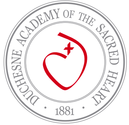 Sara Howard attended Duchesne Academy of the Sacred Heart in Omaha. Duchesne focuses on college prep, and traditionally, 100% of the graduates go on to attend 4-year universities and colleges. Many low-income parents in Nebraska would love to be able to send their children to a school with such a focus and such a track record. Hopefully, Senator Howard will vote to extend her privileges to others.  Lynne Walz chose to send her children to Archbishop Bergan Catholic School in Fremont. This school prides itself on “recognizing the individual learning styles and abilities of each student.” With a student-to-faculty ratio of 10:1, it’s very possible to do so. This is the kind of attention and focus that many parents would like for their children. Hopefully, Senator Walz will vote for education freedom for low-income parents because she knows how important it was for her own family.  Dan Quick sent his children to Grand Island Central Catholic. It’s the only school in Grand Island that offers foreign languages in middle school, and it also offers a variety of other innovative courses including AP, dual-credit, distance learning, and tech prep. Hopefully, Senator Quick will understand that he’s not the only parent who would love to be able to access these options for his children. And his children aren’t the only ones who just get one shot at their K-12 educations. It will be interesting to see in the debate today how many senators will send the message to low-income Nebraskans that school choice is “for me but not for thee.” Here’s to hoping that today is the day Nebraska shows its commitment to equal opportunity for all children. It’s time.
Thankfully, every child in America today has an opportunity to go to school. We could describe this opportunity with a pair of shoes. Shoes help people to go places, and education does the same thing. If an education opportunity is like a pair of shoes, then every child in Nebraska has at least one pair of shoes in his or her closet. Most low-income and middle-income children have only one pair of shoes in their closets: public education. Fortunately, these shoes fit most kids. They’re able to put them on, feel comfortable, and get where they want to go. But what if this one pair of shoes doesn’t fit very well? Or what if the one pair of shoes in the closet isn’t appropriate for the places the student wants to go? Wealthy children in Nebraska have several pairs of shoes in their closets, represented by multiple education opportunities. Since their parents can afford other options (private school, homeschool, online courses, etc.), it’s much more likely that they’ll be able to find a pair of shoes that fits well. LB295 puts more pairs of shoes in the closets of low- and middle-income children. One educator recently criticized LB295 by suggesting that it wouldn’t put all options within reach. For example, she said, perhaps what the student really wants is to go to Creighton Prep, but it’s too far for his parents to drive. This is like arguing that if a child can’t have a closetful of shoes, he should only have one pair. It’s hard to conceive of a situation in which people would rather have no choices at all than to have 2 or 3 options at their disposal. In most of the country, all children (wealthy to poverty-stricken) have several pairs of shoes in their closets. In some places, kids have dozens of pairs to choose from between public schools, private schools, charter schools, and online schools). Yet here in Nebraska, the education establishment is still insisting that everyone wear the same pair, whether it fits or not. They should rest assured that even if parents are given more pairs to choose from, most kids will still happily put on their pair of public school shoes and be confident that it will take them where they want to go. For those whose toes are squished or who need a different style, though, it’s time to offer a few more pairs. It’s time to recognize the diverse needs and dreams of Nebraska’s students. Let’s give all of them, not just the wealthy ones, a chance to run. An independent fiscal analysis released today demonstrates that scholarship tax credit legislation would pay for itself over time and, if amended, would achieve permanent net state savings within two years. The study was conducted by Nebraska School Finance Strategies (NSFS) and follows nationally-recommended best-practices in determining the LB295’s fiscal impact on Nebraska.
“Eighteen other states are already showing that tax credit scholarships create a lifetime of better opportunities for children from low- and middle-income families, and are a proven fiscal and economic policy success,” said Nicole Fox, Director of Government Relations for the Platte Institute for Economic Research. “This study shows that as the number of Nebraska students receiving charitable support through Opportunity Scholarships grows, the savings to the State of Nebraska would grow as well.” LB295, introduced by Senator Jim Smith of Papillion and prioritized by Senator Lou Ann Linehan of Elkhorn, provides for private school scholarships for low-income and working-class students. It does so by enacting a tax credit for donations to nonprofit scholarship granting organizations. LB295 is expected to be debated during the week of March 19th. Under an amendment (AM1418) adopted by the Revenue Committee, LB295 would enact a dollar-for-dollar tax credit with an initial $2 million annual aggregate credit cap. The NSFS study reveals that this would achieve a temporary net savings of at least $633,200 within two years, and pay for itself over time. Another proposed amendment (AM2071), would lower the tax credit per donation to 75 percent—allowing more contributions and, as a result, more scholarships before exhausting the annual tax credit. According to the fiscal study, this amendment would achieve a permanent net savings of more than $2 million in two years, and a permanent net savings of $3 million in the first three years. The savings would continue every year. This translates into $1.43 saved for every $1 in tax credits spent. “When we make policy decisions in the legislature, we must use best practices. This fiscal study demonstrates what we already know through common sense: scholarship tax credit policies save the state money. They also benefit kids. It’s a win-win for Nebraska families and taxpayers,” said Senator Linehan. As recommended by the National Conference of State Legislatures (NCSL), the NSFS study analyzes key factors in assessing the cost savings of the tax-credit scholarship legislation. These factors include the percentage of participants who would have otherwise attended public schools, the enrollment capacity of accessible private schools, and the average cost of tuition in private schools versus the average cost-per-pupil in public schools. Similar best practices are not offered by the state legislature’s fiscal office. The NSFS fiscal study finds LB295 would save the state nearly $5 million in TEEOSA spending in the first two years, anticipating that approximately 93% of first-time scholarship recipients would otherwise enroll in public schools. These students could begin filling the nearly 14,000 available seats in K-12 private schools across Nebraska. Tom Venzor, Executive Director of the Nebraska Catholic Conference said, “Private schools in Nebraska currently educate around 39,000 students across Nebraska. It is estimated that these schools save Nebraska taxpayers around $450 million dollars per year in education spending. Private schools are ready and willing to continue serving more children across the state.” “The LCMS Lutheran nonpublic schools in Nebraska support LB295. We support, as the study notes, that a fiscally responsible move to adjust the tax credit percentage to 75% creates a great savings for our state. That savings can be reinvested in public education. It could also be used to provide further relief of the heavy tax burden on Nebraskans,” said Bob Ziegler, Executive for Education and Youth Ministries, Nebraska District – Lutheran Church Missouri Synod (LCMS). “Many of the LCMS schools across the nation participate in some type of education choice and it has proven to be beneficial for all concerned. Education choice is good for all Nebraskans!” Today, tax-credit scholarship programs exist in 18 other states. Numerous independent studies confirm that such policies achieve a net state savings. For example, according to the Iowa Department of Revenue, Iowa’s tax-credit scholarship program achieves net state savings of about $12 million annually. Since Iowa’s program started in 2006, it is estimated that tax-credit scholarships have saved Iowa at least $280 million—$2 in state savings for every $1 of tax credit. The Florida Office of Program Policy Analysis and Government Accountability reports that the Florida scholarship tax credit program saved $1.49 in state revenue for every $1 of tax credits. Representing parents of Nebraska public and private school children, Deb Portz of School Choice Lincoln said, “It is time for Nebraska to incorporate proven best practices with the fiscal and academic improvement innovations that other states have already tested with their tax credit scholarship programs.” “The research confirms what Nebraskans already know, that school choice creates positive contributions for our communities. Legislators have the opportunity to improve the lives of students by providing greater access to education options that best fit the child’s needs, all while spending no new general fund dollars or reducing funding for traditional public schools,” said Brad Stevens, Regional Director of Americans for Prosperity. “When creative solutions are available that can significantly improve the quality of life for Nebraska’s students, state senators have no excuse but to act and support LB 295.” Across the country, scholarship tax credit programs serve over 270,000 students. Education choice policies, like LB295, lift the financial burden that prevents many families from choosing the education that best suits their children’s needs. “It is time for Nebraska legislators to put parents and children’s educational needs first. Parents desire to send their children to a school where they learn best. Tax credit scholarships are a tremendous way to actually provide this opportunity for the children who need it most,” said Karen Bowling, Executive Director of Nebraska Family Alliance. Jason Bedrick, Director of Policy for EdChoice, said: “Tax-credit scholarships empower families with educational choices so their children can find the right opportunity that meets their learning needs. The scholarships are a constitutional and fiscally responsible way to make sure more students can access the educational options they deserve.” The Nebraska School Finance Strategies, Inc., offers economic consulting services in the field of public education finance, with special emphasis on the analysis of the Tax Equity and Educational Opportunities Act (TEEOSA), Nebraska’s primary formula for distributing financial aid to kindergarten through twelfth grade public schools. The lead analyst of the fiscal study, William Scheideler, brings nearly a decade of experience in providing economic research of public education for Nebraska state government. He holds a master’s degree in applied economics from Iowa State University and has over 30 years of experience developing applied economic, demographic and tax analysis. The teachers unions are saying that Nebraska cannot afford $2 million in statewide tax credits to help low-income students get scholarships for K-12 private school tuition; meanwhile, OPS (a single district, mind you) passed a measure to issue over $300 million in pension obligation bonds, which actuaries estimate will pull nearly $21 million out of the classroom every year to pay bondholders due to the district’s out-of-control pension debt. Plus, state taxpayers are annually spending over $1 billion for K-12 state per-pupil funding (this doesn’t include local property taxes for local school districts).
In other words, the Nebraska teachers unions are willing to take hundreds of millions of taxpayer dollars out of classrooms for the ill-managed pensions of a single district, but they’re not willing to consider a $2 million program that goes directly to classroom learning for low-income children across the state. And when you consider that within a few years the $2 million will actually be saving the state money, it’s inconceivable that they’re trying to block this program. Unfortunately, that’s not where the hypocrisy ends. Let’s take a look at the union rhetoric surrounding this issue. It helps us to understand the unfathomable. This morning I wrote some of our Nebraska state senators to express support for LB295, Opportunity Scholarships, and I got three replies back. One was non-committal, one was very positive, and one included many false statements, including the following:
This senator also emphasized that she personally benefited from private education (as did Senator Harr who is threatening to filibuster the bill), and she also recognized that the legislature has a responsibility to make sure a free public education is available to all children in the state. Yet she didn’t recognize the fact that private schools in the state are currently saving taxpayers roughly half a billion dollars per year. For all the whining and crying over $2 million in tax-credits, TEEOSA is currently costing taxpayers over $1 billion every year. In conclusion, we’re spending over $1 billion each year (on a state level alone) for public education that is getting poor results (only about half of the students are reaching reading proficiency). LB295 would help low-income children in failing schools to access additional education opportunities that are currently out of their financial reaches. In addition to helping these children, Nebraska taxpayers would save money in the long run, and public schools would benefit from increased per-pupil funds and standards-raising competition. How can the unions rationalize their opposition to LB295? It’s unfathomable. -Rachel Terry |
|
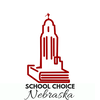
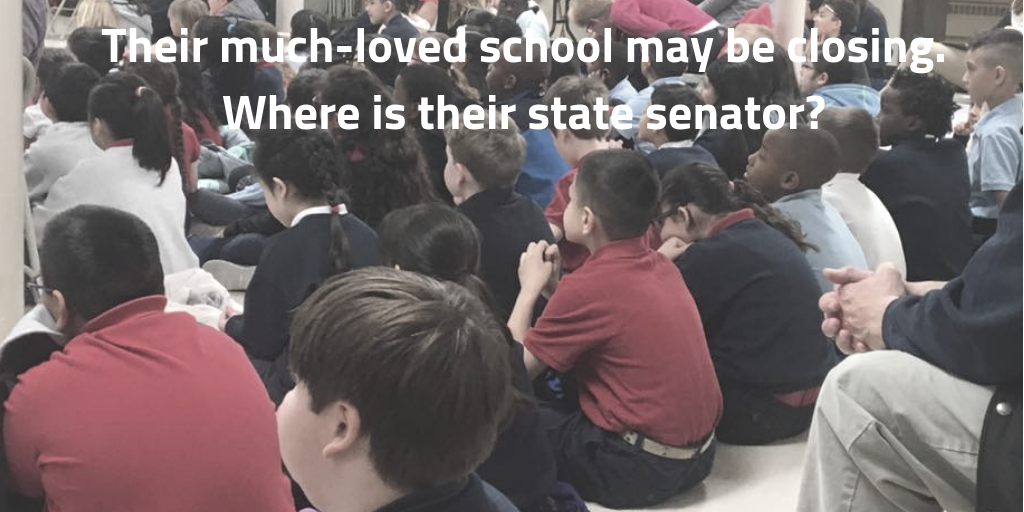
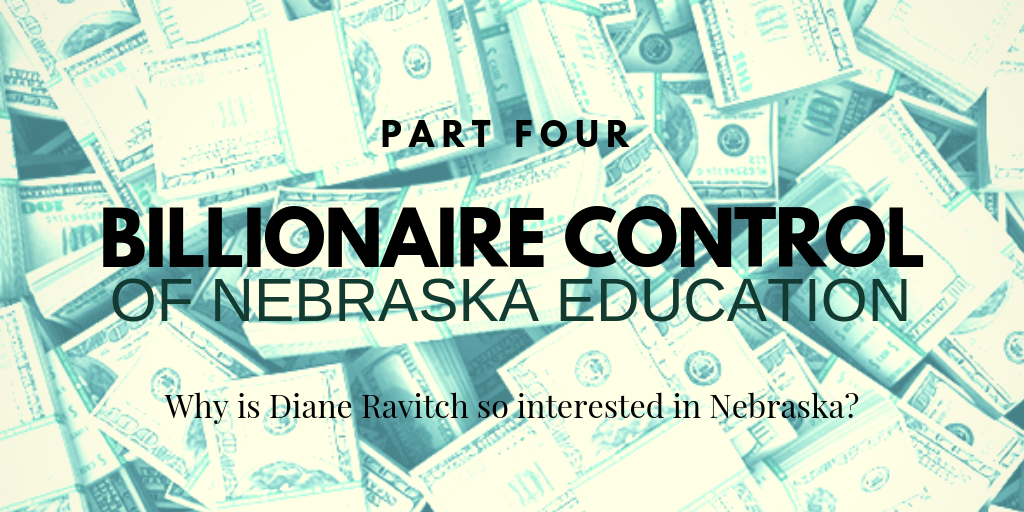
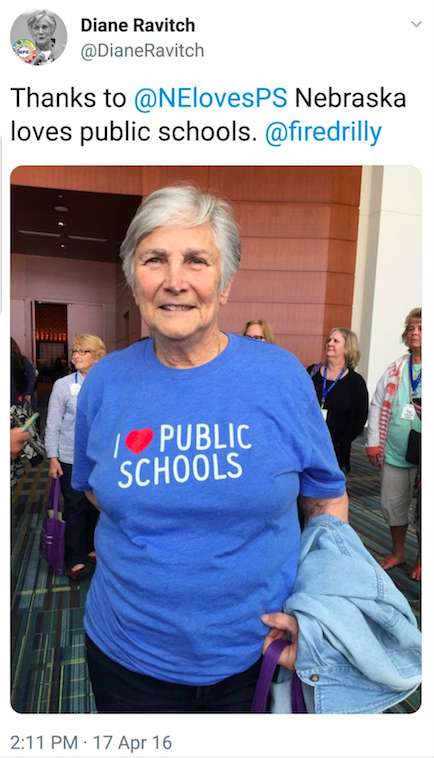
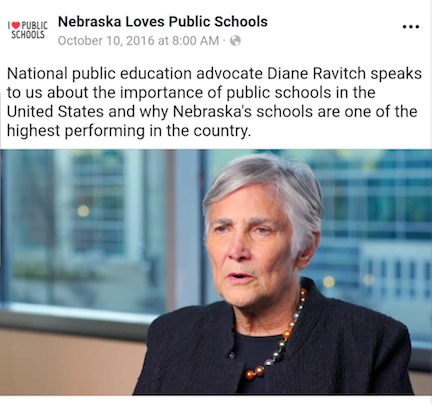
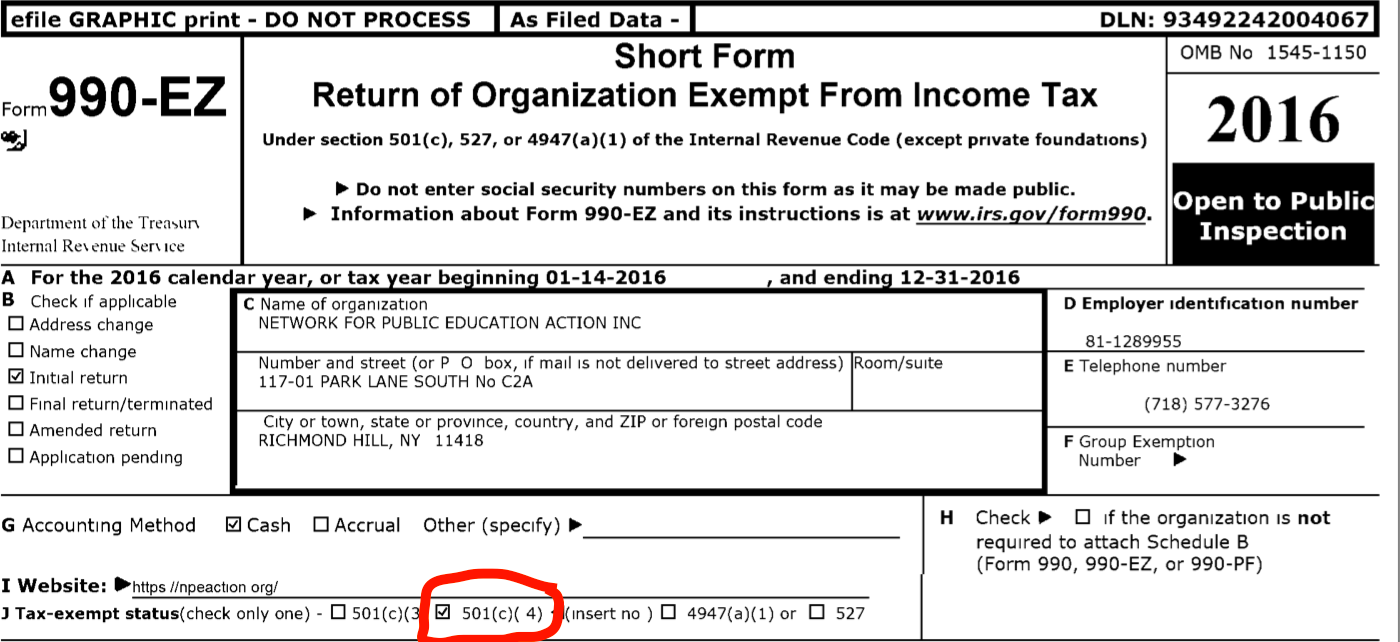
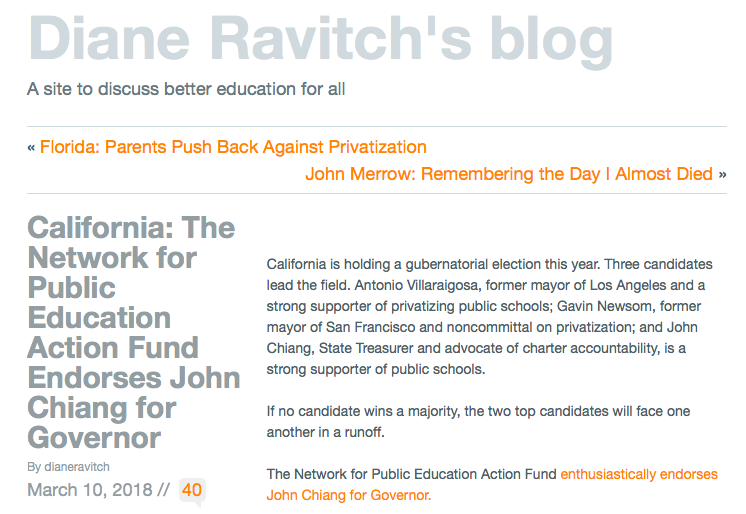
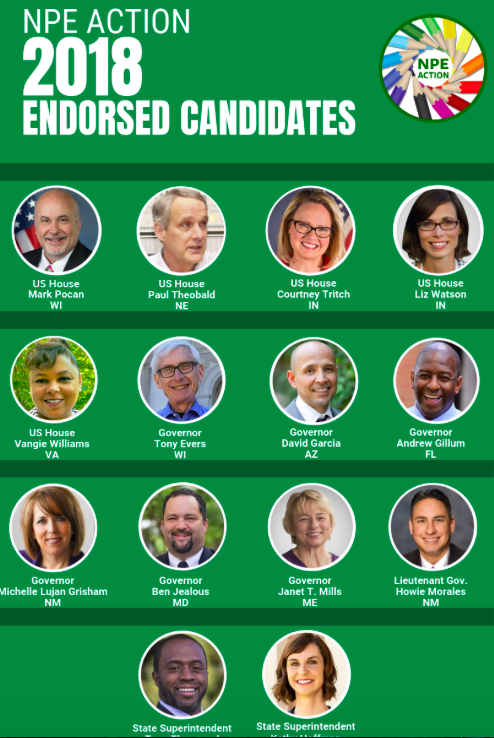
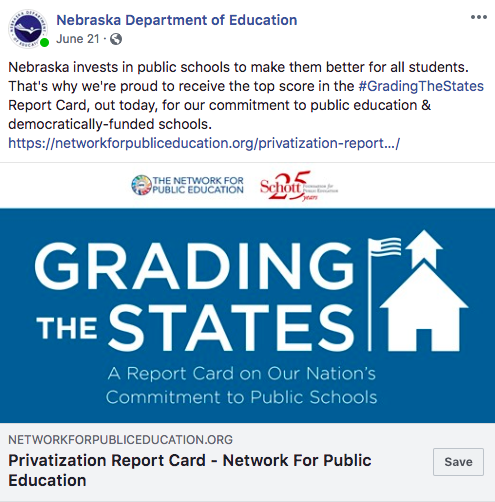
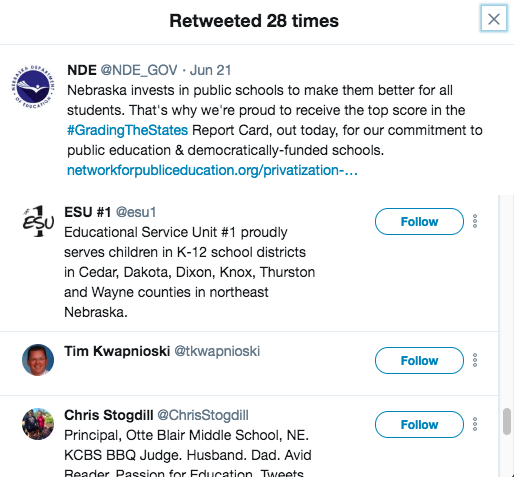
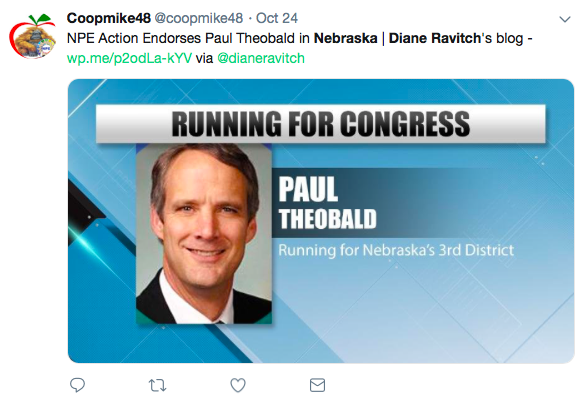
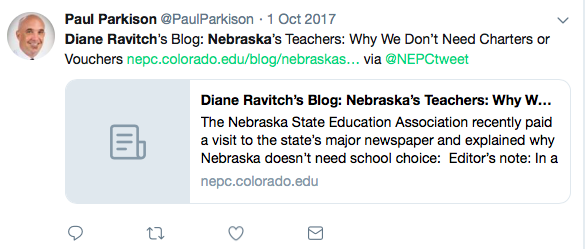
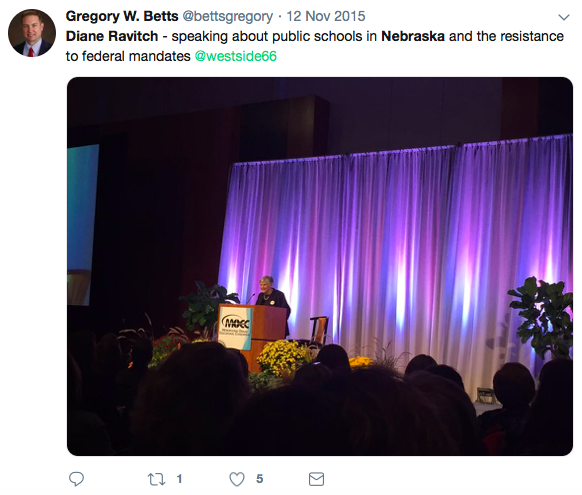
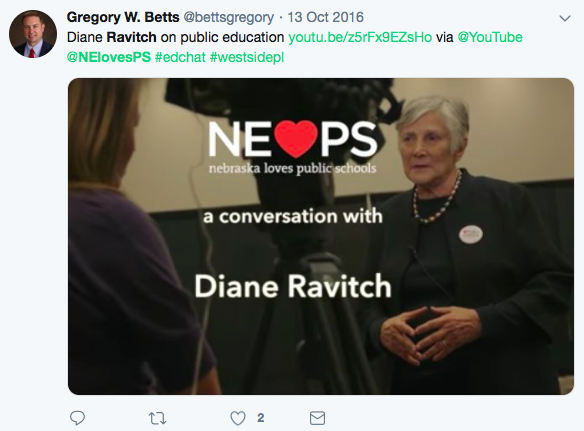
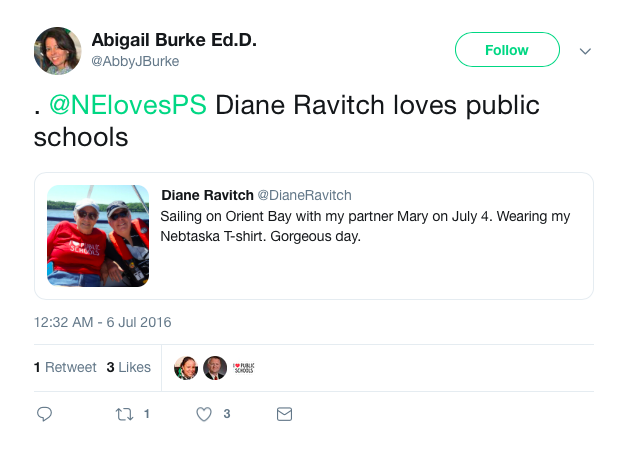

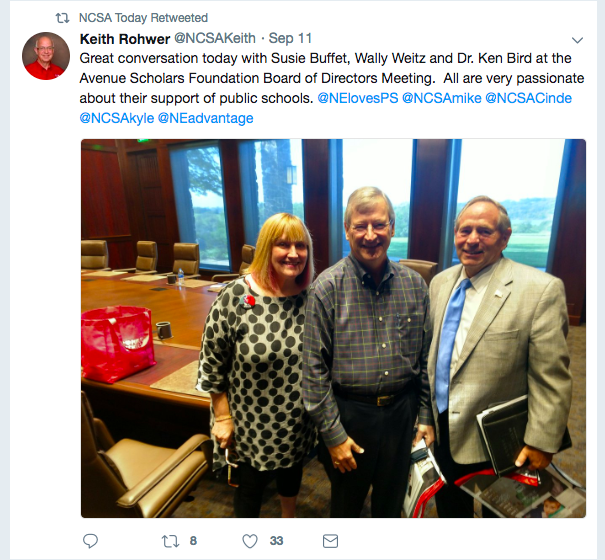
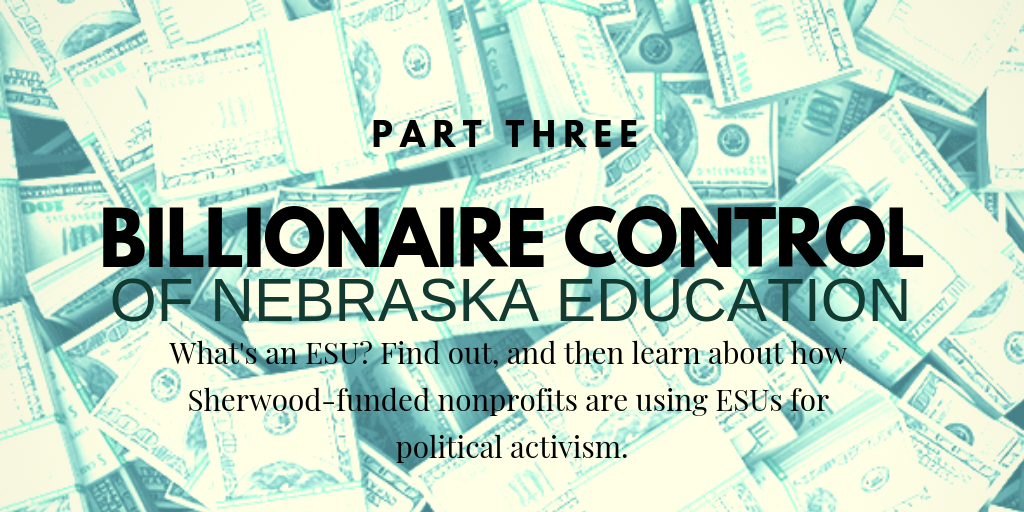
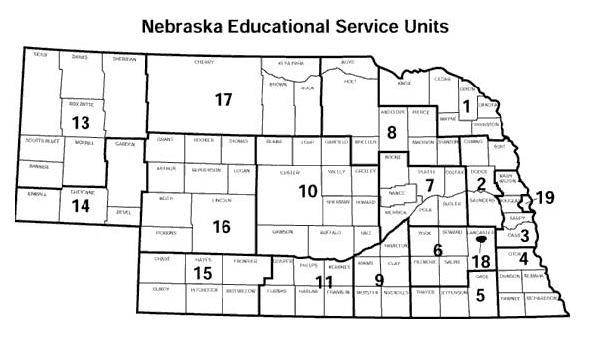
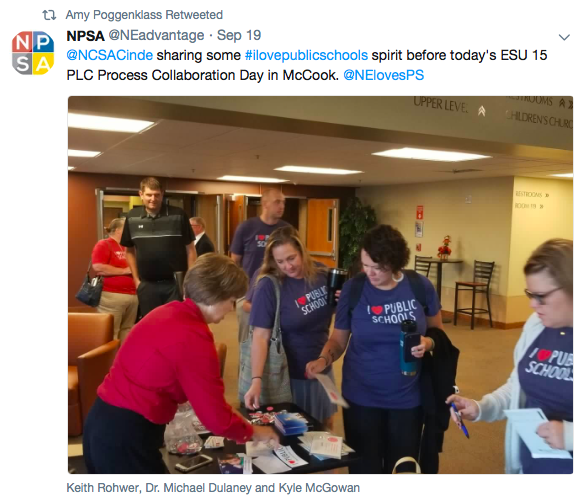
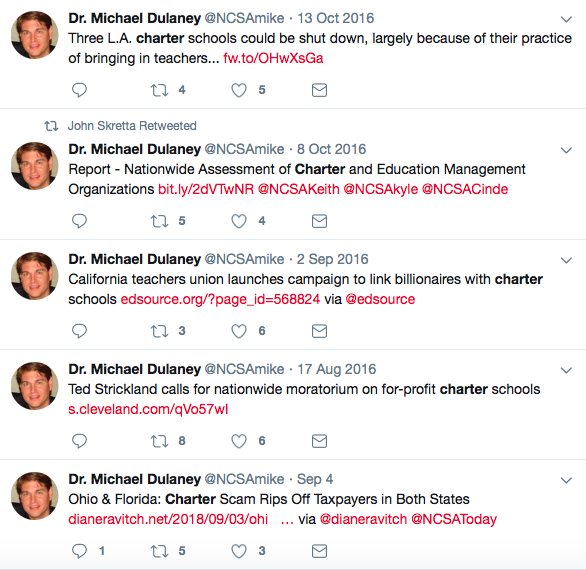
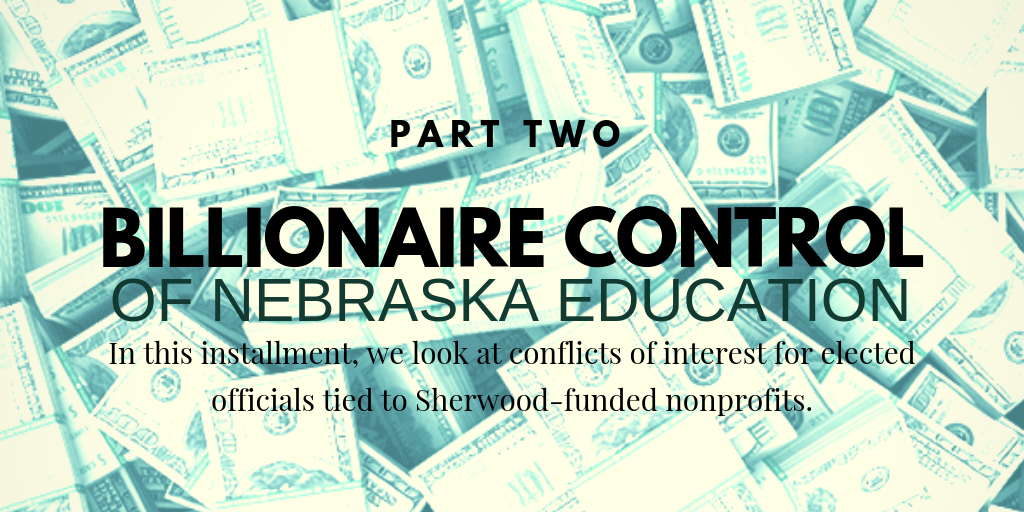
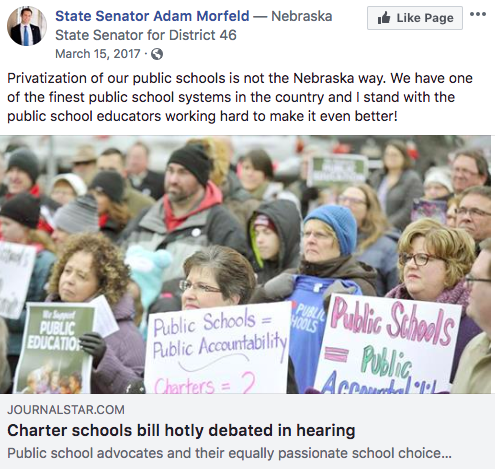
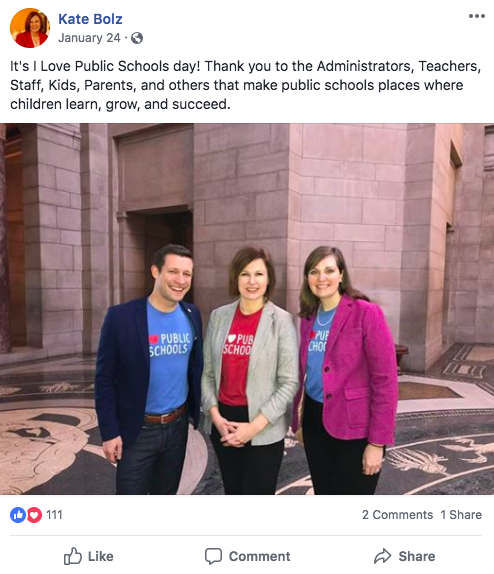
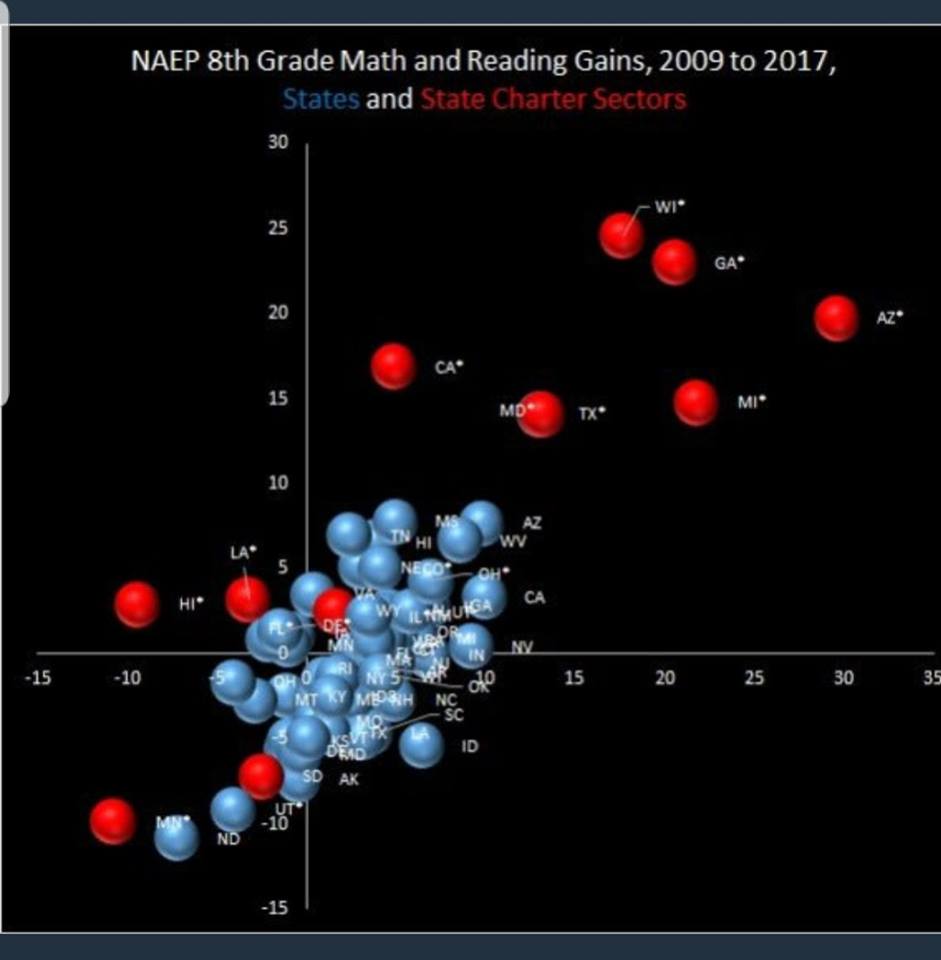
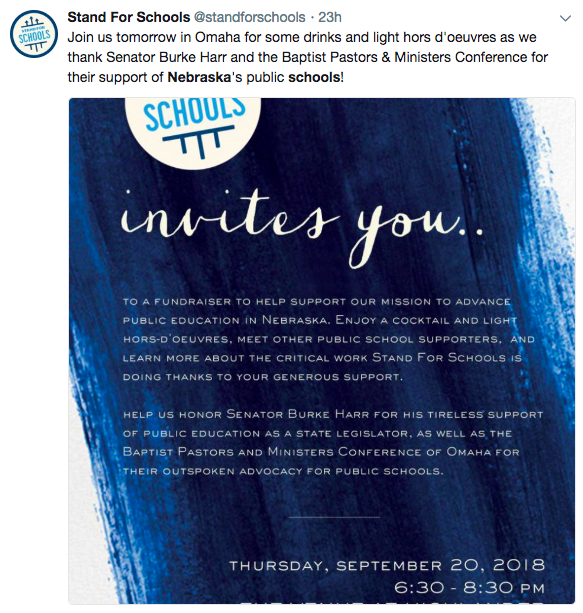
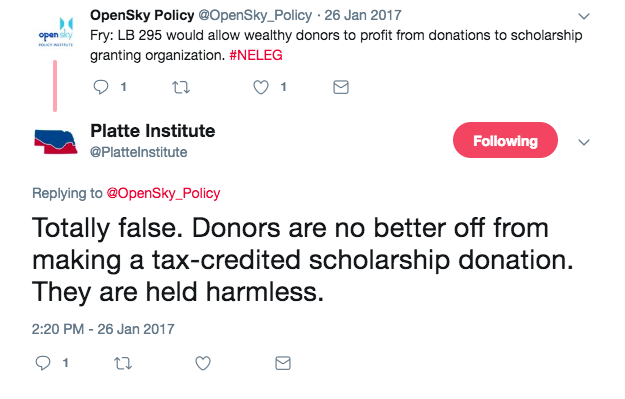



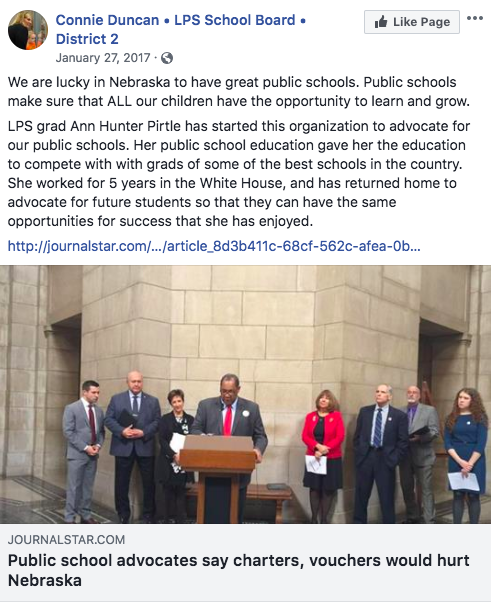

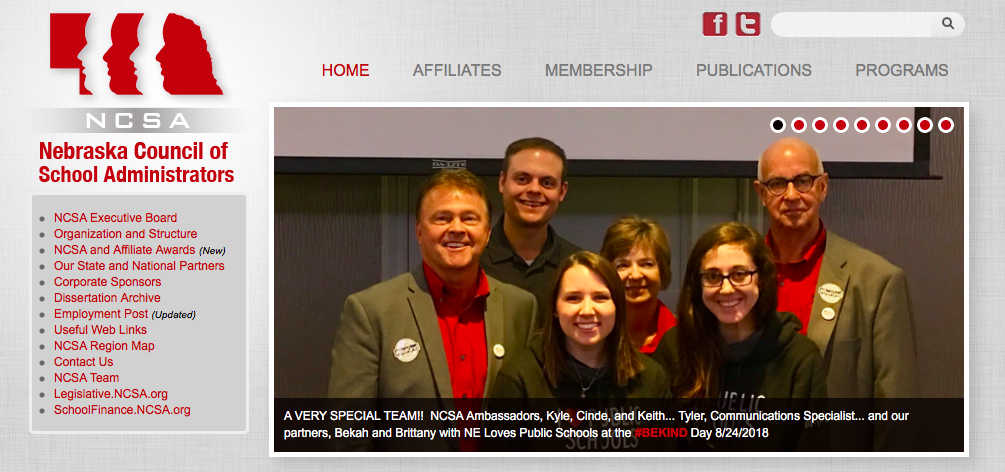
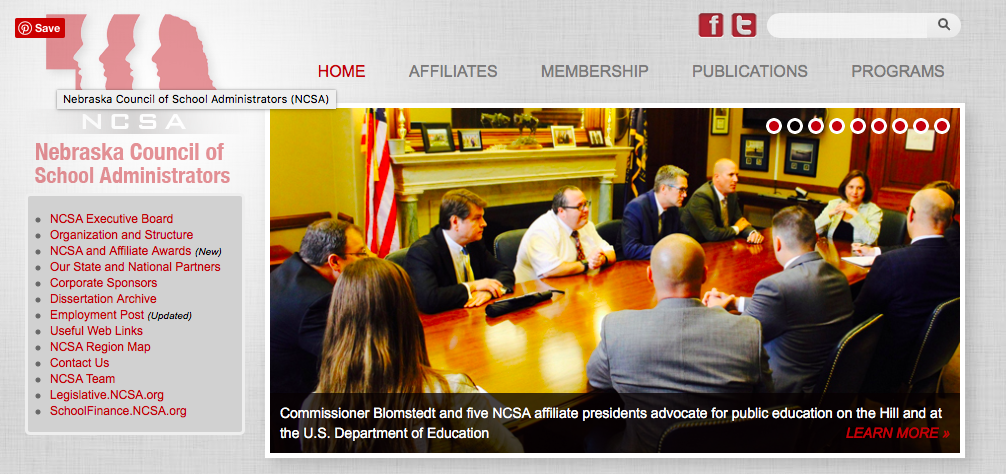
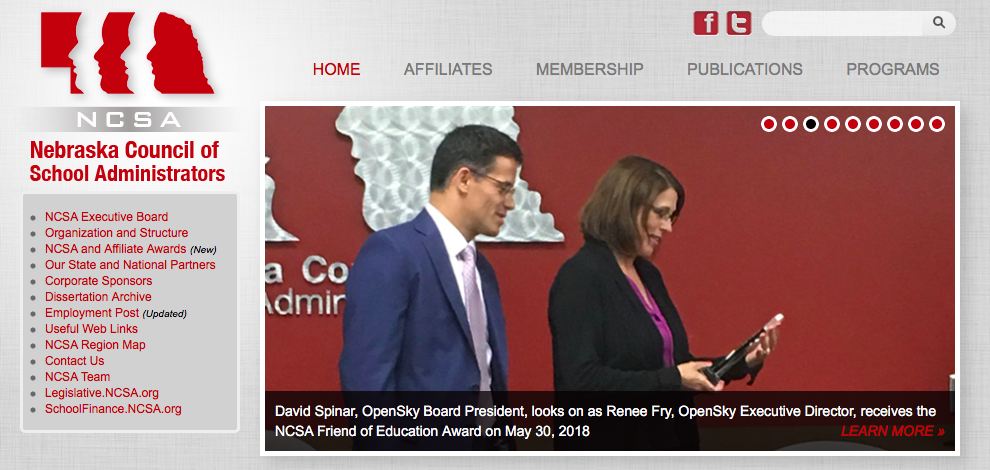
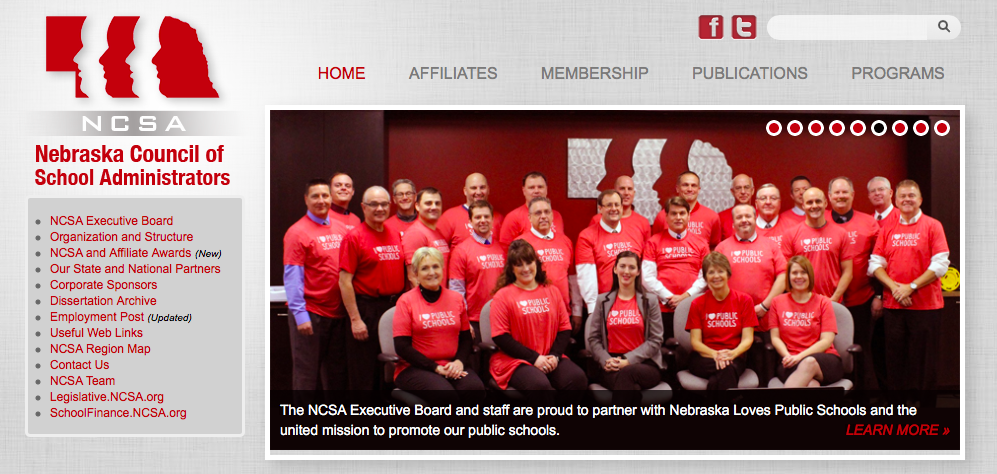
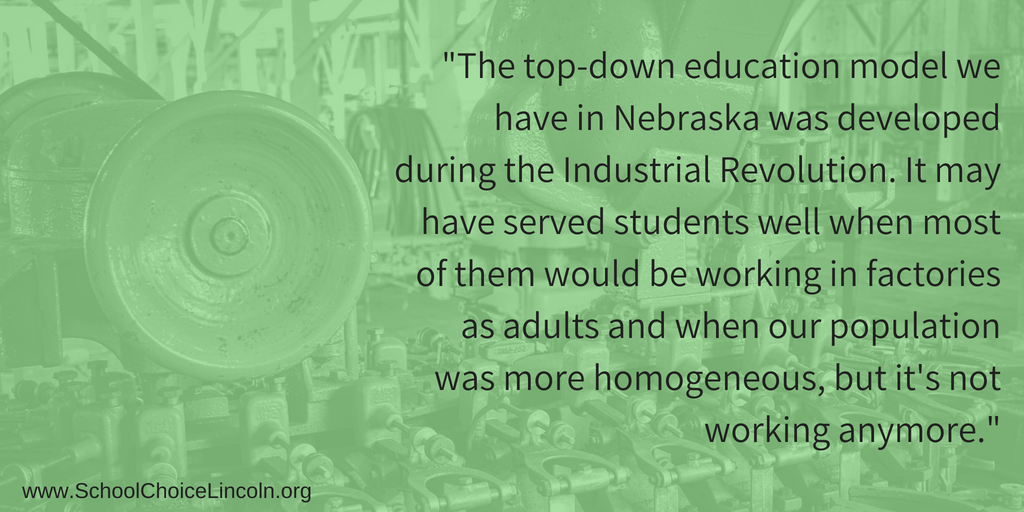
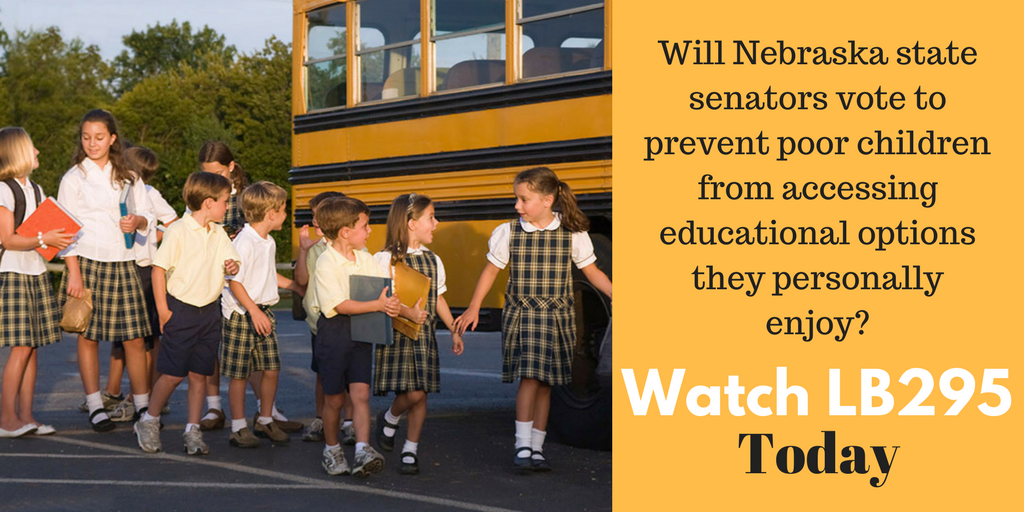
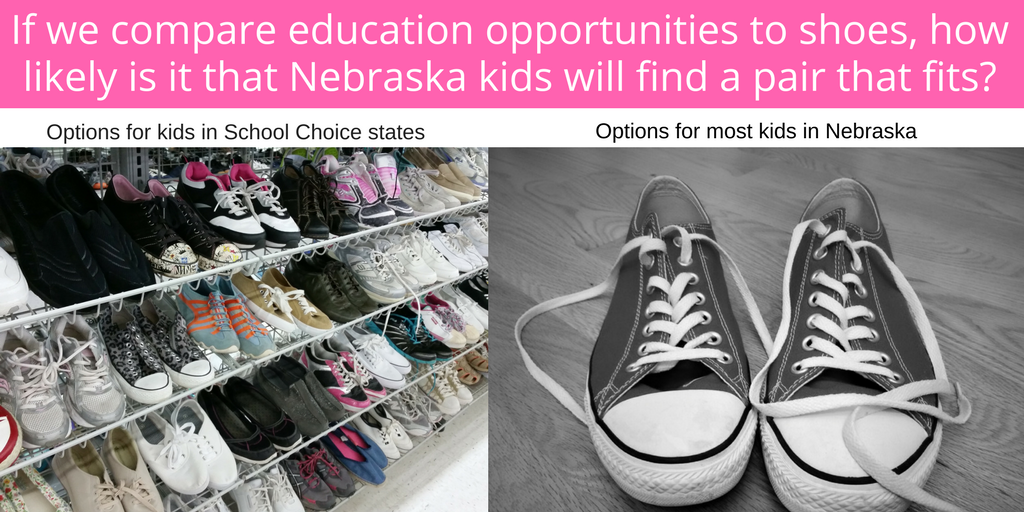
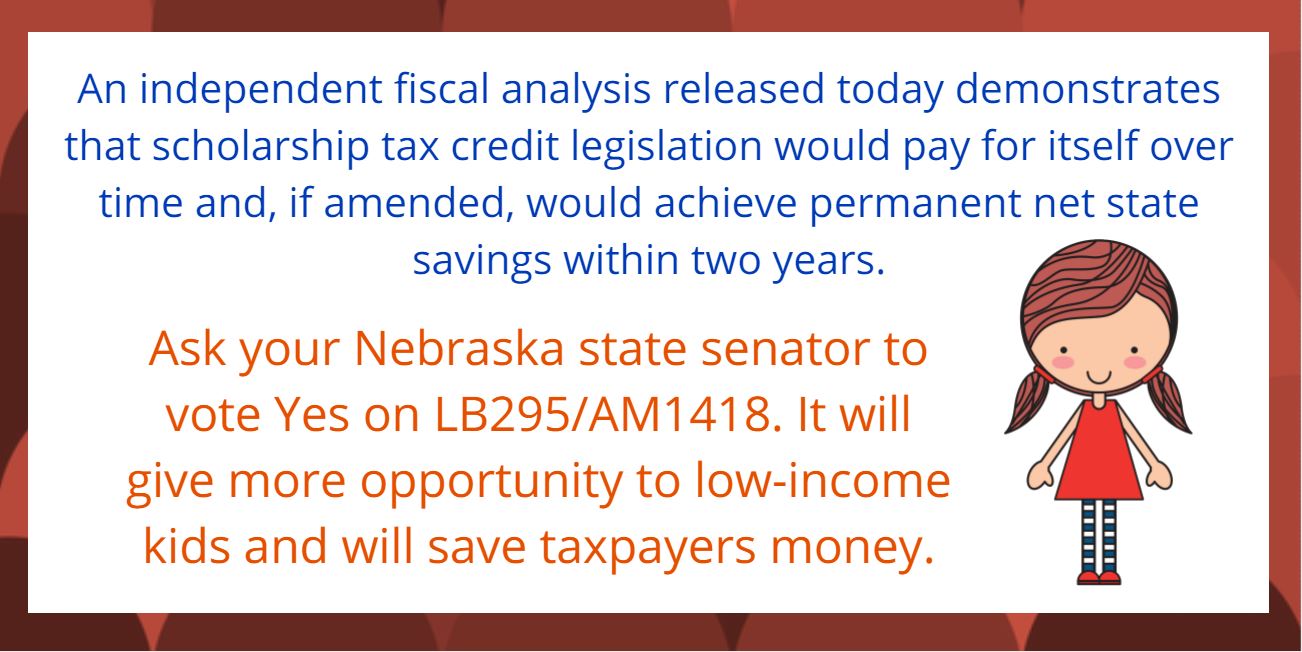
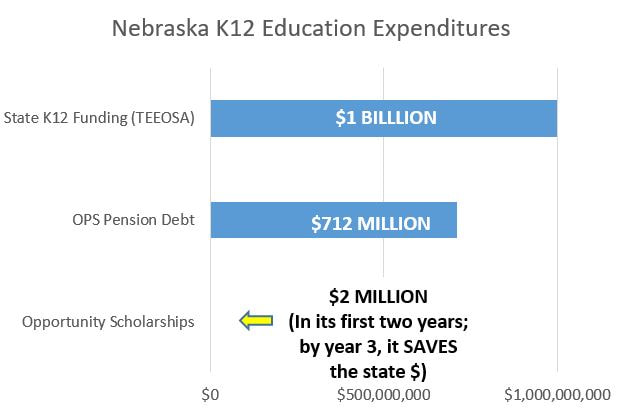
 RSS Feed
RSS Feed